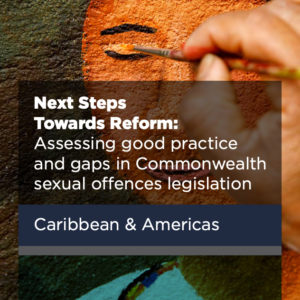Consensual sexual activity with a person who has a disability is not an offence. Consensual sexual activity should not be criminalised solely on the basis that one or more of the participants is a person with disability. Sexual assault laws should not assume that all or any persons with disability are incapable of freely and voluntarily agreeing to sexual activity or understanding the nature of it.
The test for consensual sexual activity with a person with a disability should be the same as for a person without disability – the giving of free and voluntary agreement. Similarly, situations recognised in the law in which genuine consent cannot be given, such as actual incapacity or abuse of trust or authority, such as in a care facility, should apply to all people. Any person, whether they are a person with disability or not, can lack capacity to consent freely and voluntarily either temporarily or permanently. The legislation should not impose additional protective measures merely on the basis of a person’s disability and regardless of whether they have the capacity to give, and have given, free and voluntary consent to the sexual activity. However, it may be consistent with good practice to provide for higher penalties for sexual offences against people with disability where there is no genuine consent or to provide that abuse of a trust or care relationship is an aggravating factor to be considered in sentencing. Criminalising all sexual activity with people with disability, however, is paternalistic and violates a person’s fundamental rights to legal capacity, equality and non-discrimination.



